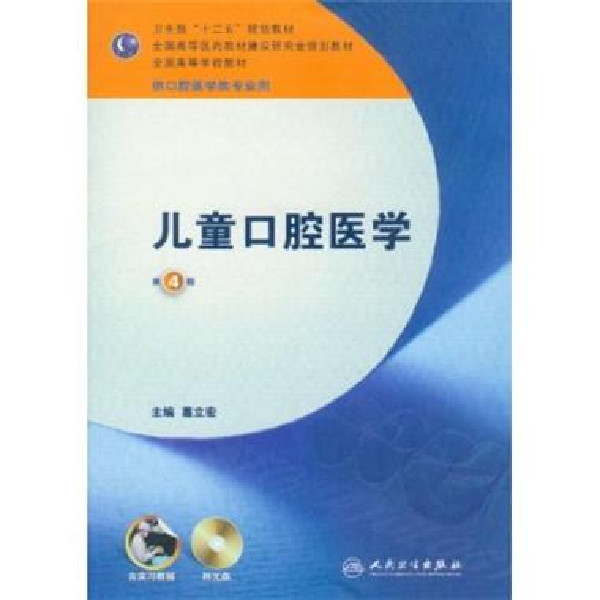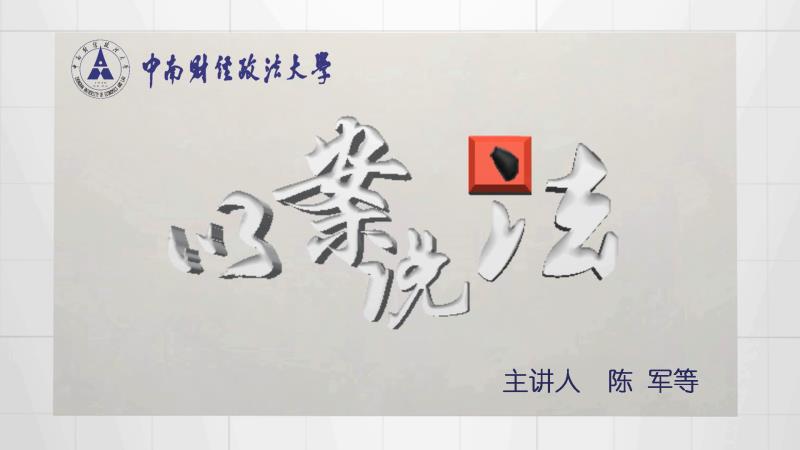
当前课程知识点:Hospitality English > 4 TECHNIQUES TO UNDERSTAND TOURISM LITERATURE > 4.1 Getting to Know Tourism Literature > 4.1.2 Proper way to choose for reading
返回《Hospitality English》慕课在线视频课程列表
In this video, you will learn three ways of reading, including intensive reading, extensive reading and speed reading. After learning this video, you should be able to select an effective and efficient way of reading according to different purposes or needs. You are suggested to use the skills recommended and apply each method in your reading practice out of class.
返回《Hospitality English》慕课在线视频列表
欢迎回来
现在 让我们开始学习 选择阅读的正确方式
在这部分中 将介绍三种阅读方式
它们是精读 泛读和速读
你们在阅读文献时 可以自己决定合适的方式
这取决于你的阅读需求和目的
每种方法都有其优点
现在 我们先来谈谈精读
我想这种阅读方式是三者中你最熟悉的
因为在学校英语课的大部分时间里
都会安排精读课文
这是英语教学的基本方法之一
然而 这次 让我们从不同的角度来考虑这个问题
当你阅读和学习文献时
你应该自己灵活地选择合适的方法
根据你阅读的目的
以及文献的内容和风格
这就是为什么你应该先了解阅读方法
然后进行练习 直到你能有效地使用它
精读可以被定义为
一种精确的阅读 以便理解各种细节
它涉及到学习者的一种专注于细节的阅读
你必须完全准确地理解这些细节
当你采取这种方法时
你阅读文献的目的
主要包括这里所列的一点或两点
一是要准确理解这篇文献的每一个细节
另一个是学习如何使用单词和句型
第一条似乎更加重要
对于读文献做研究的人来说
这里是文献精读的主要技巧
通常情况下 所有的读者都会把注意力集中在一个较短的段落上
以提高工作效率和集中注意力
这个段落可以是学术文章的摘要
一本专著的序言 一本教科书的导言等
当我们开始阅读时 它们对于掌握文献的要点至关重要
对于文献中任何需要仔细思考的部分
精读也是十分必要的
例如 研究论文的发现与结论
我们应该逐句 逐字地读那段文字
直到你能准确理解它
同时 我们可以学习如何使用这些单词或句型
必要时用于完成进一步的写作任务
将新词新句和好句子做笔记是个好习惯
为了检查我们的阅读理解能力
我们可以用这样的词来问自己一些问题:
5W指的是谁 什么 为什么 什么时候 什么地方
H的意思是如何 怎么样
然后尝试用自己的话回答这些问题
必要时 也可以尝试将其翻译成母语
与精读相比
泛读让学习者参与到以快乐和大致理解为目的的阅读之中
这种方法提倡用目标语言阅读尽可能多的材料
这种方法提倡用目标语言阅读尽可能多的材料
你将接触到最广泛的词汇和语法结构
泛读往往是为了获得对某一主题的总体理解
当你选择这种方法进行文献阅读时
意味着你要扩大阅读范围
准确而快速地把握主旨或要点
你想从更多的材料中获得更多的信息和知识
这意味着你想要或必须快速阅读
而且 你没有必要了解所有的细节
这些都是选择广泛阅读的目的或理由
尤其是当你阅读大部头的文件或长文章时
以下是一些为你提供的策略
以便达到你的文献阅读目标
1.先了解结构
这样可以对整个文献有一个大致的了解
无论它是书籍还是文章
不同的文献可能有不同的结构
本课程将介绍学术论文的典型结构
2.当你在阅读时 尝试着不用字典
你可以猜测重要新词或术语的含义
根据同义词 近义词和上下文
这样做可以节省很多时间 快速阅读
3. 一种准确而快速地获取主旨的有效方法是
通过浏览或略读的方式找到关键词和主题句
最常见的是在每段的开头
有时也被安排在段尾或中间
4. 最后一点是:选择自己感兴趣的东西来读
泛读被称为快乐阅读
对学者来说 它不仅是为了享受
也是为了搜索更多的研究信息的需要
文献阅读的第三种方式是速读
速读是指学习者在一定时间内尽可能多地阅读文献
速读是指学习者在一定时间内尽可能多地阅读文献
增加每分钟的阅读量
它被称作WPM
据说全国平均阅读速度在 250WPM 左右
通过练习适合自己的速读方法
你可以切实地将速度提高到 800WPM 左右
同时保持最大的理解力
显然 速读的目的包括
从整体上把握文献的大概内容
培养快速有效地阅读大量文献的能力
如果你能以更快的速度阅读更多的内容
特别是当你做研究或准备你的论文时 这将会很有帮助
这里有一些提高阅读速度的技巧
从头到尾阅读文章 不要有停顿
不要在一些新词和单句上浪费太多时间
阅读文章时要注意时间
用手指或笔尖指着字
眼睛随着手指快速移动
这样你就能很快地阅读了
继续多加练习
在规定时间内完成阅读
逐步地 你会发现你的 WPM 增加了
我们从读者或研究者的角度了解了文献阅读的三种方式
我们从读者或研究者的角度了解了文献阅读的三种方式
与课堂上的英语学习不同
你们需要自己选择合适的方式 进行文献阅读的练习
这种选择应该是灵活的
根据你的阅读目的和需要
第一节到此结束
谢谢您的聆听
-1.1 Hospitality and Tourism
--1.1.1 Introduction of hospitality
--1.1.2 Introduction of tourism (1)
--1.1.3 Introduction of tourism (2)
--1.1.4 Basic conception of tourism (1)
--1.1.5 Basic conception of tourism (2)
-1.2 Tourism Industries
--1.2.4 Convention & exhibition
--1.2.5 Entertainment & recreation
-1.3 Nature of Tourism Businesses
--1.3.2 Characteristics of hospitality
--Week 1 Quiz
-2.1 Basic Approaches and Etiquette of Hospitality
--2.1.1 Basic approaches and etiquette of hospitality
-2.2 Meet and Greet at Accommodations
--2.2.3 Know how to offer more
-2.3 Meet and Greet at Other Situations of Hospitality
--2.3.1 At transportation services
--2.3.3 At conventions and exhibitions
--2.3.4 At entertainment and recreation situations
-2.4 Communication Skills of Online Travel Agency
--2.4.1 Communication skills of online travel agency
--Week 2 Quiz
-3.1 Culture and Communication
--3.1.2 The characteristics of culture
--3.1.3 What is communication?
--3.1.5 Myths of communication
-3.2 Barriers to Cross-cultural Communication
-3.3 Cross-cultural Communication
--3.3.2 Cross-cultural verbal communication
--3.3.3 Hofstede's cultural dimensions (1)
--3.3.4 Hofstede's cultural dimensions (2)
-3.4 International Practice in Cross-cultural Communication
--3.4.1 International practice in cross-cultural communication
--Week 3 Quiz
-4.1 Getting to Know Tourism Literature
--4.1.1 Significance of tourism literature
--4.1.2 Proper way to choose for reading
-4.2 Capturing the Main Ideas
--4.2.1 Starting with the title & abstract
--4.2.2 Following the structure to focus
--4.2.3 Identifying topic sentences
-4.3 Accumulating Idiomatic Expressions
--4.3.1 Expressions of defining & categorizing
--4.3.2 The extensive use of passive voice
-4.4 Summarizing Reading & Thinking
--4.4.1 Writing a summary of your readings
--4.4.2 Taking notes of your thinking
--Week 4 Quiz
-5.1 What Is A Literature Review
--5.1.1 The definition and types of literature review
--5.1.2 Systematic approaches of literature review
-5.2 Collection and Analysis of Literature
--5.2.2 Methods of literature collection
--5.2.3 Analysis of literature
-5.3 Content of Literature Review
--5.3.1 Concepts, propositions, and theories
--5.3.2 Conceptualization and theoretical framework
--5.3.3 Operationalization of the research framework
-5.4 Evaluate Your Literature Review
--5.4.1 Evaluation of your literature review
--Week 5 Quiz
-6.1 Basic Structure of MTA Thesis/Project
--6.1.5 Reference and acknowledgement
-6.2 Stages of Completing a Thesis
--6.2.1 Thesis initiation stage - research design
--6.2.2 Thesis initiation stage -research methodology(1)
--6.2.3 Thesis initiation stage - research methodology(2)
--6.2.4 Thesis initiation stage - research proposal
--6.2.5 Thesis writing and completion stage
-6.3 Essentials in Managing a Successful Thesis
--Week 6 Quiz
--Final Quiz

